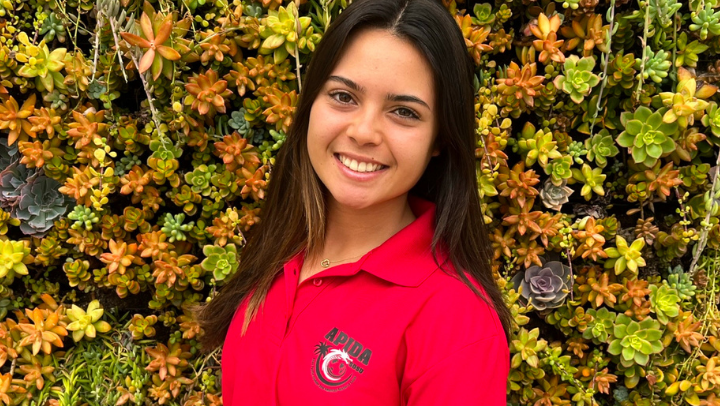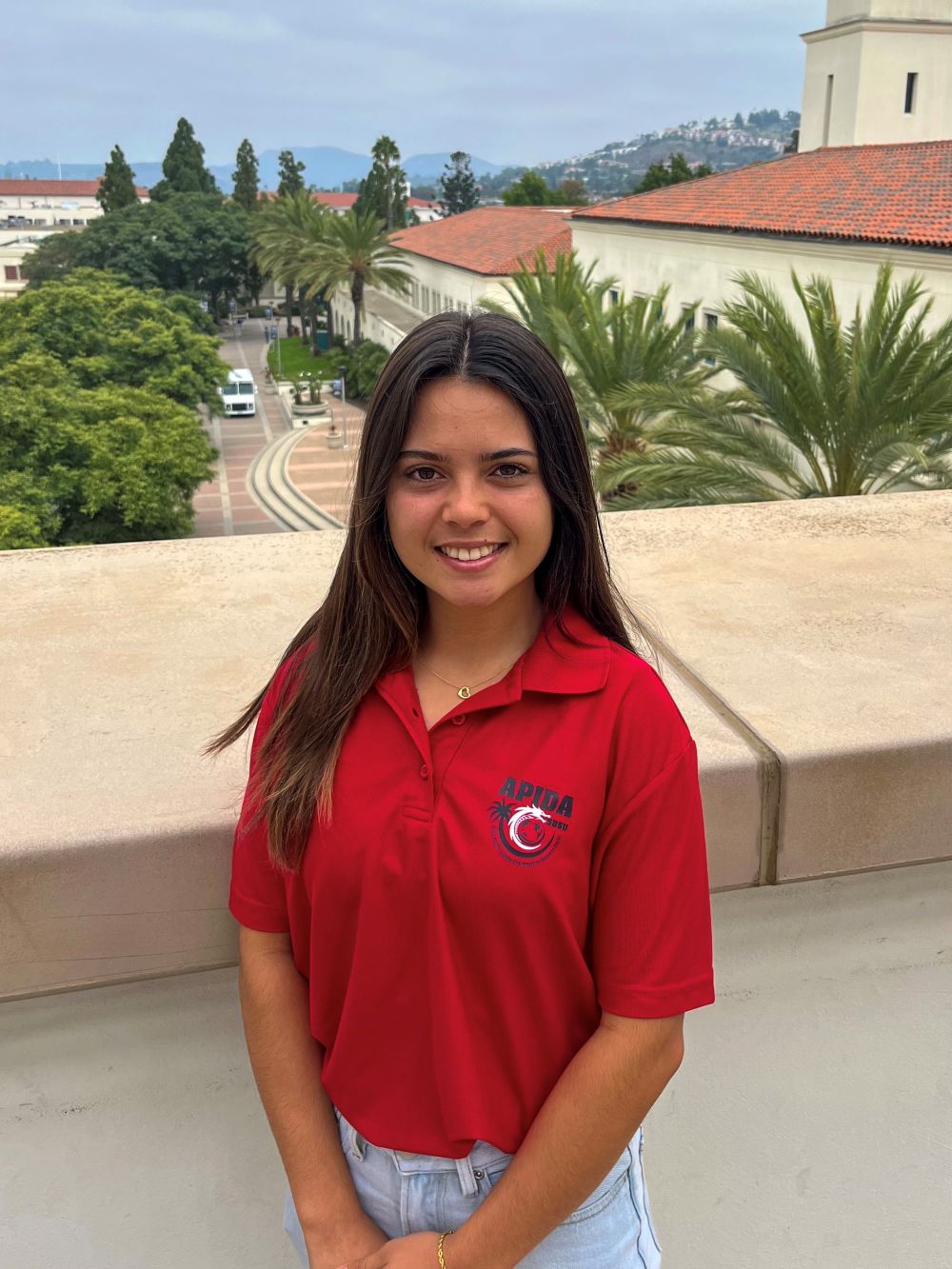How SDSU’s APIDA Center reshaped one student’s story
Public health major Krissa Jackson found meaning and a calling in learning her cultural history

Krissa Jackson admits that before attending San Diego State University, she had not heard of the term APIDA, which stands for Asian, Pacific Islander and Desi-American.
Jackson, a Filipina American who grew up in Oceanside, described her knowledge of APIDA history and culture as superficial before college.
“I always enjoyed APIDA Culture through food and movies, but my K-12 education never covered Asian American history in depth,” Jackson said. “Growing up, I didn’t know APIDA Heritage Month existed, and had never heard the term ‘APIDA.’”
That changed when she arrived at San Diego State University and discovered the APIDA Center, which promotes APIDA culture and elevates the experiences of students who identify with or are interested in these communities. It’s one of 10 community centers at SDSU and SDSU Imperial Valley.
Today, Jackson, in her third year at SDSU, works as a student assistant at the center, presenting educational workshops and creating cultural campaigns to support the development of APIDA-identifying students and allies.
 Open the image full screen.
Open the image full screen.
“One of the requirements for the class was that we attend three APIDA Center events, which I thought was cool because it made us explore SDSU,” Jackson said.
One of the first events she attended was dedicated to the history of chai tea, and students also went to make their own chai bags. Something about the event clicked with her, she said.
“It was a super fun event to go to, because you left with the knowledge and the historical significance, but you also left with something tangible that you could take with you,” Jackson said, referring to her chai tea bag, which she shared with her roommates.
Jackson, who attended Mission Vista High School in Oceanside, said what resonated with her about that moment was that for most of her life, she had lived in a diverse community where she was exposed to Asian culture, but not the historical context.
“I think being in San Diego, growing up with a diverse culture around me, but it not being reflected in the K-12 education system, when I got to SDSU and saw some of the programs offered by the APDIA center, it gave me the opportunity to learn about those things,” the public health major said.
“One thing I tell other people is that I love San Diego because it is so diverse, and I want to live here the rest of my life so that my children can grow up seeing and appreciating other cultures,” she said. “Having a heritage month to celebrate it draws attention to that diversity that makes this place so wonderful.
“There is always power in knowledge and knowing people’s histories, because no matter what, you will always find someone who is going to be different from you, whether it’s ethnicity, economic status,” Jackson said. “And being able to learn about their history is important so that we are able to empathize with each other. We all have our own stories to tell and things we have gone through…having centers and having our Heritage months allow us to have solidarity with one another.”
Loh-Hagan, who has been the director of the APIDA Center since its inception, said Jackson’s experience of getting a deeper grasp of APIDA history and culture is at the core of the center’s mission.
"One of the main goals of the APIDA Center is to ensure that all of our SDSU students, regardless of ethnicity, have access to APIDA histories and narratives,” Loh-Hagan said. “We pride ourselves in our commitment to teaching and learning about all the unique experiences of APIDA communities."
"Krissa Jackson has been working at the APIDA Center for three years. She is a shining example of APIDA excellence. She started in our A-LIST learning community and is now one of the mentors for current and future A-LIST students. Krissa models passion, rigor, and curiosity. She is an important member of our team,” Loh Hagan added.
The APIDA Center has also helped her career goals come into focus, Jackson said.
A public health major with a 3.9 grade-point average, Jackson said she wants to have a career in health promotion, removing obstacles to health care access for people in underserved communities.
“Working at the APIDA Center, I’ve learned a lot about health disparities and that certain resources are harder to reach if you are a certain ethnicity,” Jackson said. “Having that culturally competent understanding of the world will be really helpful for me moving forward, as I want to know the issues that the communities face and make health care more accessible to them.”



